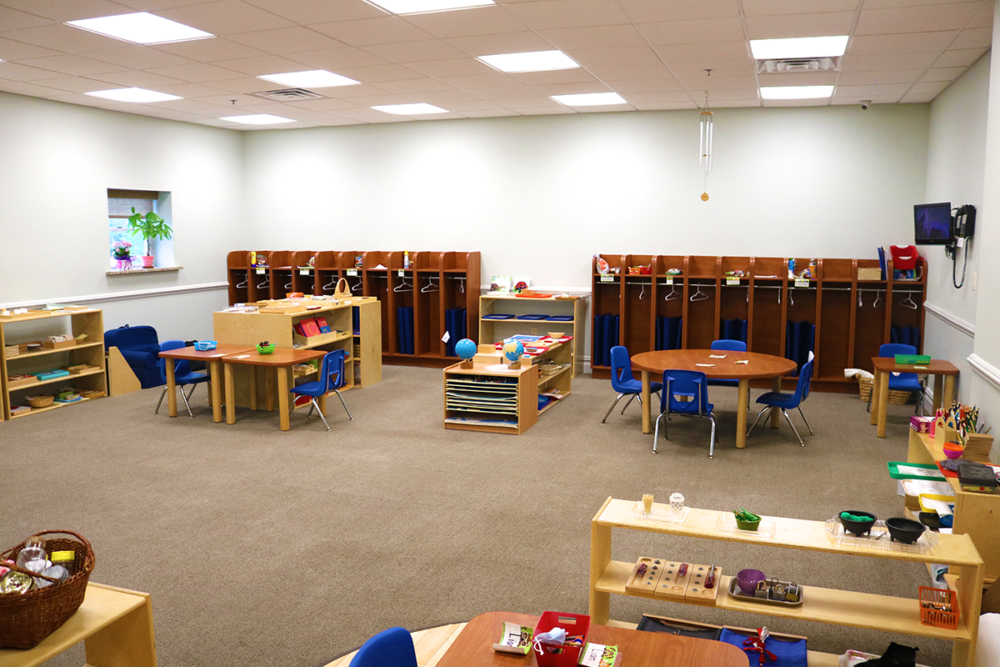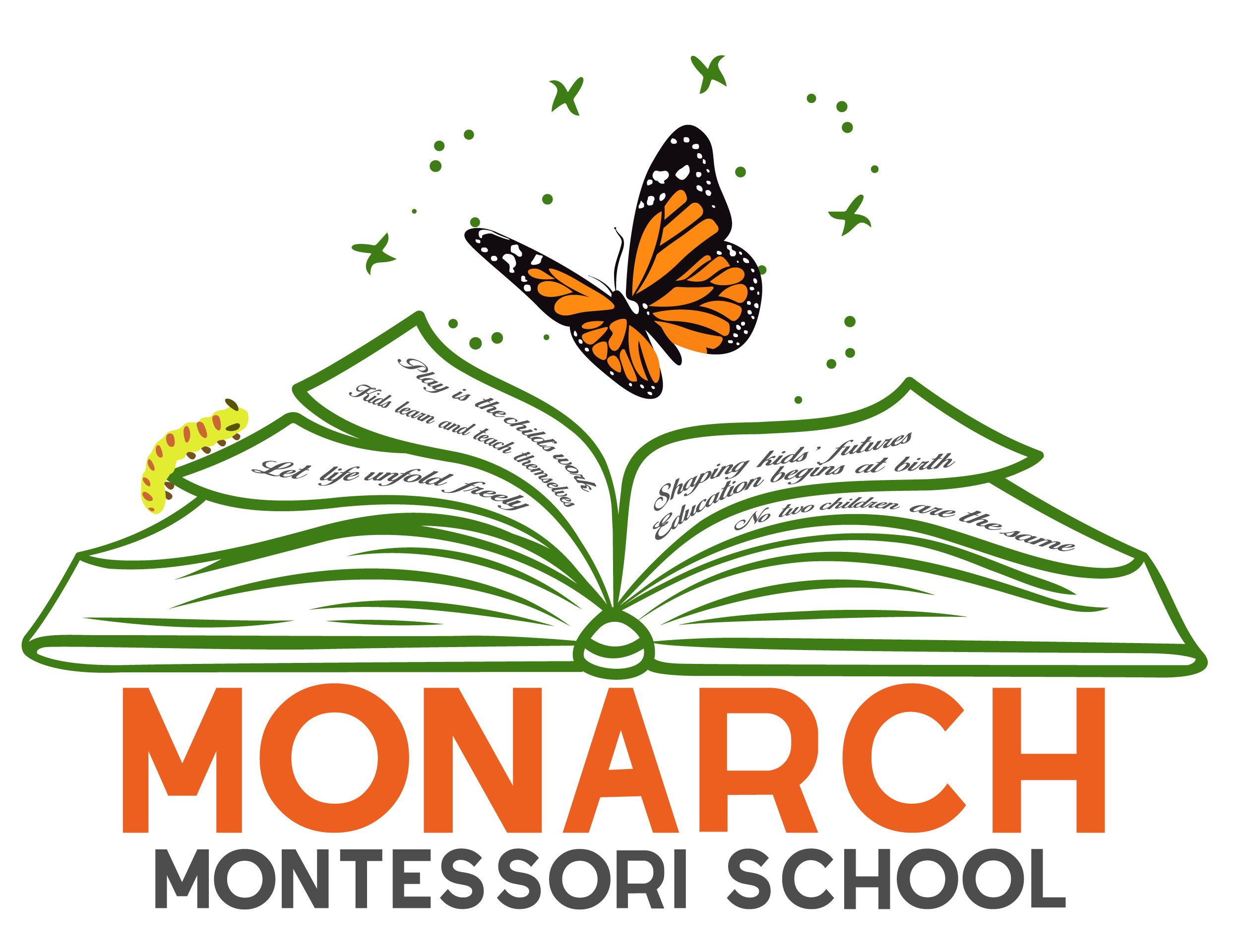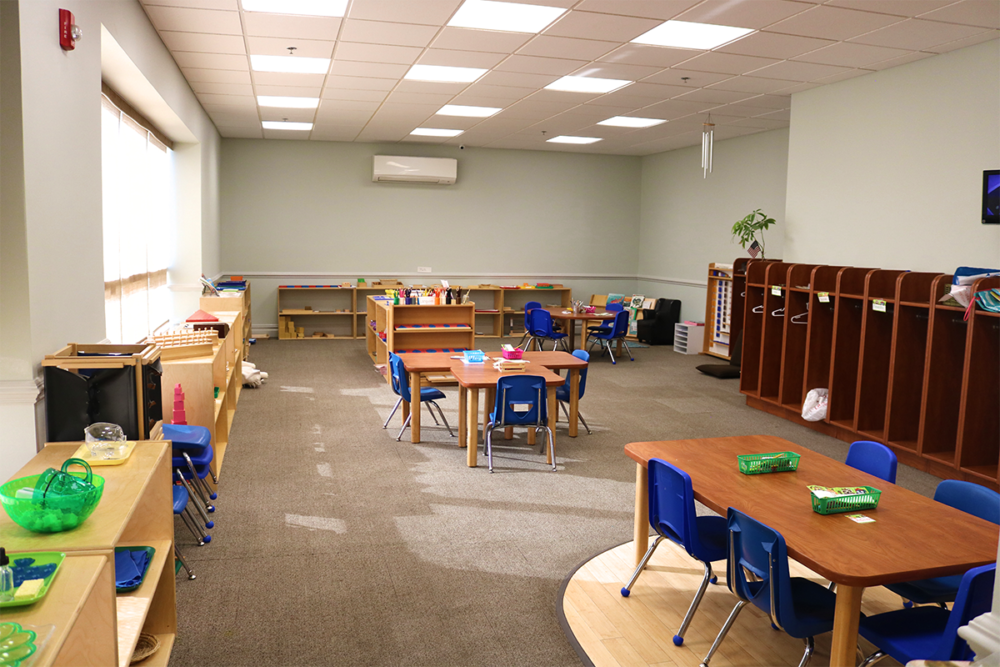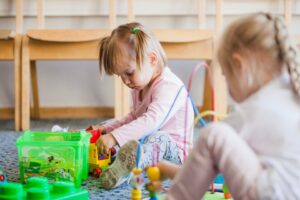Which is better – Montessori or Traditional School?
Montessori education emphasizes self-directed learning, hands-on activities, and mixed-age classrooms. In contrast, traditional schools typically follow a structured curriculum with teacher-led instruction and grade-level classes.
Understanding these fundamental differences is key to determining which environment best suits your child’s learning style and personality
Let’s delve into the core distinctions between these approaches to help you make an informed choice for your child’s education.
Learning Environment
- Montessori: Imagine a classroom filled with natural light, aesthetically pleasing materials, and various learning stations. Children move freely, choosing activities that interest them. This is the hallmark of a Montessori classroom—a prepared environment designed to foster exploration and independence.
- Traditional: Picture desks arranged in rows, a teacher leading instruction from the front, and a structured daily schedule. Traditional classrooms emphasize order and a teacher-directed learning approach.
At Monarch Montessori School, we are friendly, fun, educational, and caring. We offer child-centered classrooms that present learning activities individually to children so that students progress at their own pace.

Curriculum and Teaching Methods
- Montessori: The Montessori curriculum is often described as “following the child.” Learning is individualized, with teachers acting as guides and facilitators. Children engage with specially designed materials that encourage self-discovery and a deeper understanding of concepts. Sensory experiences and hands-on activities are central to the Montessori method.
- Example: Instead of a worksheet on fractions, a child might use fraction circles to physically manipulate and visualize parts of a whole.
- Traditional: In traditional schools, the curriculum is typically standardized and follows a set pace. Teachers deliver instruction to the entire class, and learning is often assessed through tests and quizzes. Rote memorization and textbook learning are more common in this setting.
Role of the Teacher
- Montessori: Montessori teachers observe children closely, identify their interests, and guide them toward appropriate learning experiences. They foster a love of learning by providing support and encouragement while allowing children the freedom to explore at their own pace.
- Traditional: In a traditional classroom, the teacher plays a more authoritative role, disseminating information and directing the learning process. The focus is on delivering a set curriculum within a specific timeframe.
Social Development
- Montessori: Mixed-age classrooms are a defining feature of Montessori education. This setup allows younger children to learn from older peers, while older children develop leadership skills by mentoring younger ones. This fosters a sense of community and cooperation.
- Traditional: Traditional schools typically group children by age. While this provides opportunities for social interaction with peers of the same age, it may limit the development of cross-age mentoring and leadership skills.
Here at Monarch Montessori School, we offer a variety of programs for your child. We offer childcare programs for infants to elementary school-age students. Contact us today to schedule a tour to view our facilities or call us for more information at 973-928-3605.
Assessment and Evaluation
- Montessori: Assessment in Montessori is often ongoing and observational. Teachers track each child’s progress through detailed records and anecdotal notes. Standardized tests are generally not used in early childhood Montessori programs.
- Traditional: Traditional schools rely heavily on standardized tests, quizzes, and grades to assess student learning and measure their performance against set standards.
Discipline and Classroom Management
- Montessori: Montessori classrooms emphasize self-discipline and respect for others. Children are encouraged to resolve conflicts peacefully and take responsibility for their actions. The prepared environment itself plays a role in classroom management, as children are engaged in purposeful activities.
- Traditional: Traditional classrooms often rely on external rewards and consequences to manage behavior. Rules and expectations are clearly defined, and teachers enforce them to maintain order.
Choosing the Right Fit for Your Child
The decision between Montessori and traditional school ultimately depends on your child’s individual needs and learning style. Consider your child’s personality, interests, and how they respond to different learning environments.
- Is your child naturally curious and self-directed? A Montessori environment might be a good fit.
- Does your child thrive in a structured setting with clear expectations? A traditional school could be a better option.
Visiting both Montessori and traditional schools, observing classrooms, and talking to teachers and parents can help you make an informed decision.
Come visit us at our central location: 2 Newark Pompton Turnpike, Little Falls, New Jersey 07424. We have other schools throughout NJ from North Caldwell to Cedar Grove. We would love to help you find the best school for your little one.
Which is better – Montessori or Traditional School?
Choosing the right educational path for your child is a personal journey. Both Montessori and traditional schools offer valuable learning experiences, but their approaches differ significantly. Reflect on your child’s unique needs and learning preferences.
Consider the long-term impact you envision for their education. Ultimately, the best choice is the one that aligns with your child’s individual development and sets them up for success.




